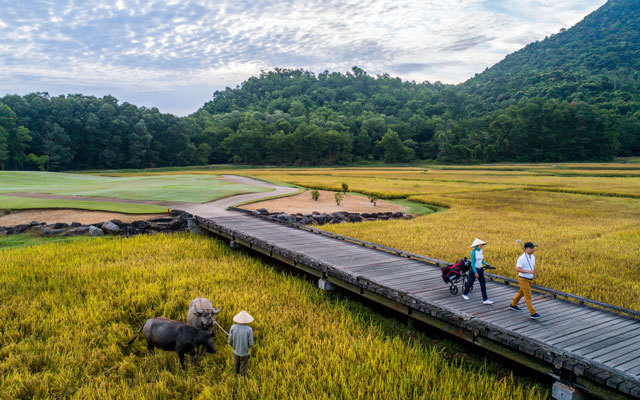Banyan Tree Group (BTG) is driving a sustainable future through food, even as the Covid-19 pandemic ushers in a consumer-driven shift towards healthier food choices.
Food choices greatly impact not only our health, but our collective future, and food carbon footprints through the value chain make up one-quarter of the world’s greenhouse gas emissions, said BTG in a press release.

Consumer surveys post-Covid have shown that over 75 per cent of consumers will choose to live healthier lifestyles after this pandemic, with food choices and nutrition ranking as one of the top areas for change.
Leading the curve in responsible business, this is yet another pioneering initiative by the group to bring personal wellbeing and the greater good closer together.
Championing local procurement and sustainably sourced food, the group, in partnership with Thai growers The Boutique Farmers has soft-opened ORI9IN, the first gourmet organic farm in Chiangmai, Thailand, in July.
This partnership of Agro-tourism aims to lead the curve in sustainable retained farming and cooperatives for living and eating well. It is the only retained farming operation globally that partners with a network of restaurants and hotels, focusing on import substitution and reducing carbon footprint without sacrificing flavour.
In addition, this year, in line with marine conservation goals around biodiversity, the group has implemented a 25 per cent benchmark of sustainable seafood sourcing by 2025 from sustainable fisheries. Banyan Tree Global Foundation’s experts will review seafood species served at each location and support identification of sustainably certified alternatives and opportunities for its properties.
Steve Newman, director of Banyan Tree Global Foundation, said: “It is our hope that this period, challenging as it is for the world, will prove to be a catalyst to review what, where and how we source, and an impetus for a responsible approach. By increasing community resilience through supporting local procurement, we believe that the quest for better personal wellbeing through food choices is an opportunity for us to make a difference, now.”
To this end, the group has also embarked on collaborations in different areas of the food value chain. A soon-to-launch one is with Grassroots Pantry, a pioneering brand in Hong Kong which is at the fore of plant-based cuisine in Asia’s fine dining scene.
Activist and founder-chef Peggy Chan said: “By introducing techniques and combining ingredients that are not often used in commercial kitchens, Grassroots Pantry can help pave the way for more inventive and health supportive concoctions across Banyan Tree hotels in the near future.”
A capsule menu based on plant-based, immunity-boosting foods and sustainable kitchen practices, is to launch later this year. The menu will debut in BTG’s Phuket properties, followed by a roll-out in all its hotels internationally.
The group will also partner with Country Foods, a sustainable food supply distributor, to reduce its carbon footprint by introducing a variety of plant-based products into its supply chain, starting with its Thailand hotels.




















